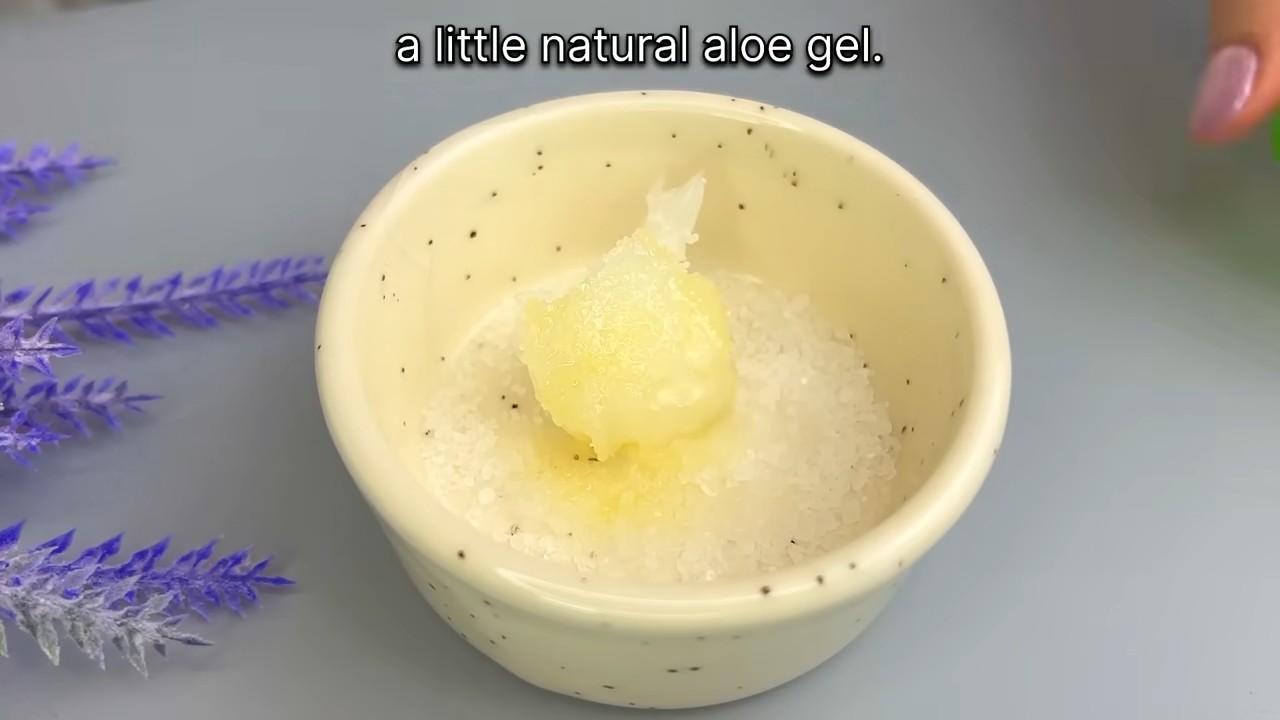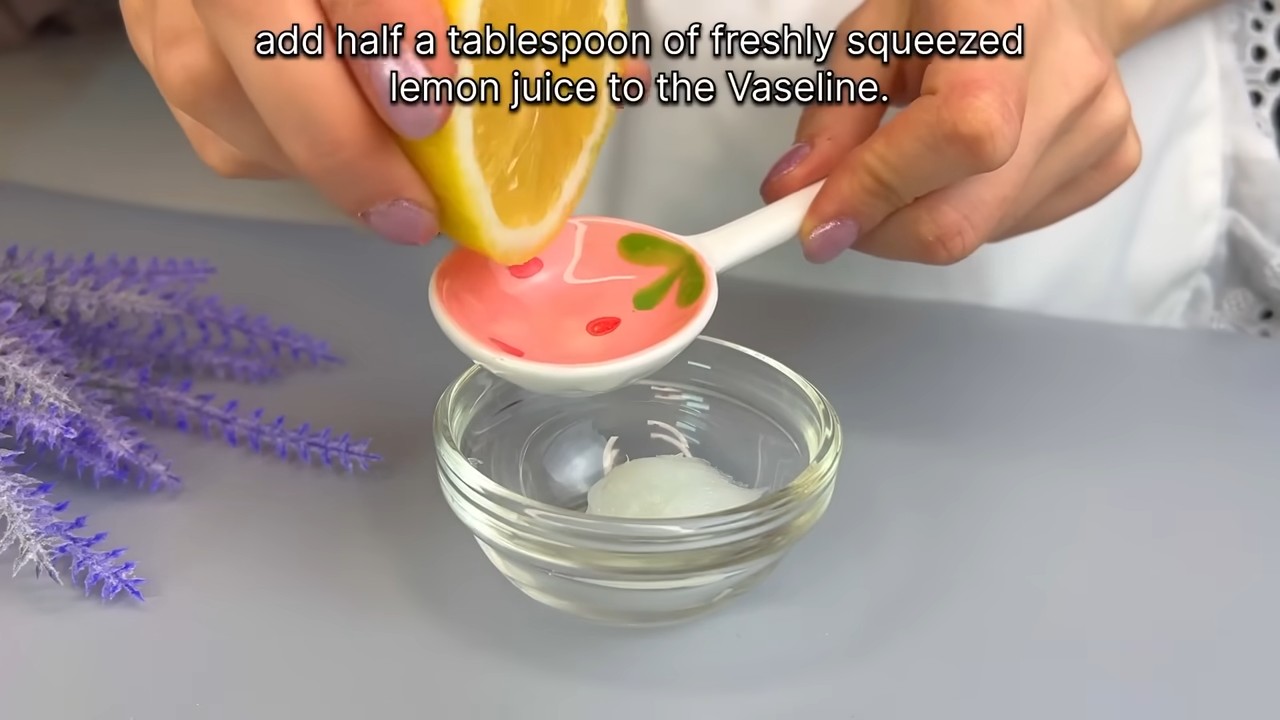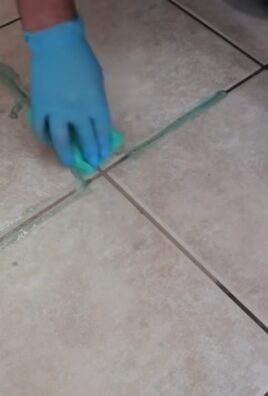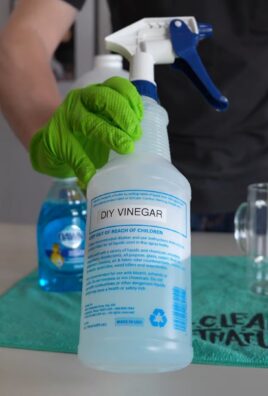Lemon juice daily uses are more versatile than you might think! Forget just squeezing it into your lemonade; this tangy liquid is a powerhouse of natural goodness that can revolutionize your home and daily routine. Have you ever wondered how to tackle stubborn stains, achieve radiant skin, or even boost your plant’s health, all with one simple ingredient? Well, get ready to unlock the secrets!
Lemons have a rich history, dating back centuries and playing a significant role in various cultures. From ancient medicinal practices to culinary traditions, lemons have always been valued for their incredible properties. Think about sailors using lemons to combat scurvy – a testament to their vitamin C richness! Today, we’re taking that historical appreciation and applying it to modern DIY solutions.
In our fast-paced lives, we’re all looking for simple, effective, and eco-friendly ways to manage our homes and well-being. That’s where these lemon juice daily uses come in. I’m going to share some fantastic DIY tricks and hacks that will not only save you money but also reduce your reliance on harsh chemicals. From cleaning to beauty to even gardening, prepare to be amazed by the power of this citrus superstar. Let’s dive in and discover how lemon juice can become your new go-to solution for a healthier, happier home!

“`html
Unlocking the Power of Lemon Juice: 10 DIY Hacks You Need to Know
Hey there, fellow DIY enthusiast! Lemon juice – that bright, tangy liquid we often associate with lemonade – is so much more than just a refreshing drink ingredient. It’s a powerhouse of natural goodness, packed with citric acid, vitamin C, and antioxidants, making it a fantastic tool for a whole range of DIY projects around your home. I’m going to share some of my favorite lemon juice hacks that are easy, effective, and eco-friendly. Get ready to be amazed by the versatility of this citrus superstar!
Cleaning and Freshening Up Your Home
Lemon juice is a natural cleaner and deodorizer, making it a fantastic alternative to harsh chemical products. Here’s how you can use it to spruce up your living space:
1. Microwave Magic: Steam Cleaning Your Microwave
Is your microwave looking a little… exploded? Don’t worry, we’ve all been there! This lemon juice trick is a lifesaver.
* What you’ll need: 1/2 cup lemon juice, 1/2 cup water, microwave-safe bowl.
* Why it works: The steam from the lemon juice mixture loosens grime and grease, making it easy to wipe away.
Instructions:
1. Combine the lemon juice and water in a microwave-safe bowl.
2. Microwave on high for 3-5 minutes, or until the mixture is boiling and the microwave is filled with steam.
3. Let the bowl sit in the microwave for another 5 minutes to allow the steam to work its magic. Don’t open the door immediately!
4. Carefully remove the bowl (it will be hot!).
5. Wipe down the inside of the microwave with a clean cloth or sponge. You’ll be amazed at how easily the grime comes off!
2. Sparkling Faucets and Fixtures: Removing Hard Water Stains
Hard water stains can make your faucets and showerheads look dull and grimy. Lemon juice to the rescue!
* What you’ll need: Lemon halves, clean cloth.
* Why it works: The citric acid in lemon juice dissolves mineral deposits and hard water stains.
Instructions:
1. Cut a lemon in half.
2. Rub the cut side of the lemon directly onto the affected areas, focusing on areas with heavy staining.
3. Let the lemon juice sit for about 15-20 minutes to allow the citric acid to work.
4. Rinse thoroughly with water.
5. Buff the fixtures with a clean, dry cloth to restore their shine. For stubborn stains, you might need to repeat the process.
3. Cutting Board Sanitizer: Eliminating Odors and Bacteria
Cutting boards can harbor bacteria and absorb odors, especially after cutting onions or garlic. Lemon juice is a natural disinfectant and deodorizer.
* What you’ll need: Lemon half, coarse salt (optional).
* Why it works: Lemon juice’s antibacterial properties kill germs, while the salt acts as a gentle abrasive to scrub away residue.
Instructions:
1. Sprinkle coarse salt over the cutting board (optional, but recommended for extra cleaning power).
2. Rub the cut side of a lemon over the entire surface of the cutting board, using the salt as a scrubbing agent.
3. Let the lemon juice sit for 5-10 minutes.
4. Rinse the cutting board thoroughly with hot water.
5. Dry the cutting board completely.
4. Garbage Disposal Freshener: Banishing Unpleasant Smells
A stinky garbage disposal can make your whole kitchen smell unpleasant. Lemon juice can help!
* What you’ll need: Lemon peels, ice cubes.
* Why it works: The lemon peels release fragrant oils that freshen the disposal, while the ice helps to scrub away debris.
Instructions:
1. Cut a lemon into wedges and save the peels.
2. Toss a few lemon peels and a handful of ice cubes into the garbage disposal.
3. Turn on the cold water and run the disposal for about 30 seconds.
4. Repeat as needed to keep your garbage disposal smelling fresh.
Beauty and Personal Care
Lemon juice can also be used in a variety of beauty and personal care applications. Always do a patch test before applying lemon juice to your skin, as it can cause irritation or sun sensitivity.
5. Natural Skin Brightener: Fading Dark Spots and Scars
Lemon juice contains citric acid, which can help to lighten dark spots and scars over time.
* What you’ll need: Lemon juice, cotton ball.
* Why it works: Citric acid acts as a mild exfoliant, helping to remove dead skin cells and reveal brighter skin underneath.
Instructions:
1. Dilute lemon juice with an equal amount of water (this is crucial to avoid irritation).
2. Dip a cotton ball into the diluted lemon juice.
3. Apply the lemon juice to the affected areas, avoiding the delicate skin around your eyes.
Unlocking the Power of Lemon Juice: 10 DIY Hacks You Need to Know
Hey there, fellow DIY enthusiast! Lemon juice – that bright, tangy liquid we often associate with lemonade – is so much more than just a refreshing drink ingredient. It’s a powerhouse of natural goodness, packed with citric acid, vitamin C, and antioxidants, making it a fantastic tool for a whole range of DIY projects around your home. I’m going to share some of my favorite lemon juice hacks that are easy, effective, and eco-friendly. Get ready to be amazed by the versatility of this citrus superstar!
Cleaning and Freshening Up Your Home
Lemon juice is a natural cleaner and deodorizer, making it a fantastic alternative to harsh chemical products. Here’s how you can use it to spruce up your living space:
1. Microwave Magic: Steam Cleaning Your Microwave
Is your microwave looking a little… exploded? Don’t worry, we’ve all been there! This lemon juice trick is a lifesaver.
* What you’ll need: 1/2 cup lemon juice, 1/2 cup water, microwave-safe bowl.
* Why it works: The steam from the lemon juice mixture loosens grime and grease, making it easy to wipe away.
Instructions:
1. Combine the lemon juice and water in a microwave-safe bowl.
2. Microwave on high for 3-5 minutes, or until the mixture is boiling and the microwave is filled with steam.
3. Let the bowl sit in the microwave for another 5 minutes to allow the steam to work its magic. Don’t open the door immediately!
4. Carefully remove the bowl (it will be hot!).
5. Wipe down the inside of the microwave with a clean cloth or sponge. You’ll be amazed at how easily the grime comes off!
2. Sparkling Faucets and Fixtures: Removing Hard Water Stains
Hard water stains can make your faucets and showerheads look dull and grimy. Lemon juice to the rescue!
* What you’ll need: Lemon halves, clean cloth.
* Why it works: The citric acid in lemon juice dissolves mineral deposits and hard water stains.
Instructions:
1. Cut a lemon in half.
2. Rub the cut side of the lemon directly onto the affected areas, focusing on areas with heavy staining.
3. Let the lemon juice sit for about 15-20 minutes to allow the citric acid to work.
4. Rinse thoroughly with water.
5. Buff the fixtures with a clean, dry cloth to restore their shine. For stubborn stains, you might need to repeat the process.
3. Cutting Board Sanitizer: Eliminating Odors and Bacteria
Cutting boards can harbor bacteria and absorb odors, especially after cutting onions or garlic. Lemon juice is a natural disinfectant and deodorizer.
* What you’ll need: Lemon half, coarse salt (optional).
* Why it works: Lemon juice’s antibacterial properties kill germs, while the salt acts as a gentle abrasive to scrub away residue.
Instructions:
1. Sprinkle coarse salt over the cutting board (optional, but recommended for extra cleaning power).
2. Rub the cut side of a lemon over the entire surface of the cutting board, using the salt as a scrubbing agent.
3. Let the lemon juice sit for 5-10 minutes.
4. Rinse the cutting board thoroughly with hot water.
5. Dry the cutting board completely.
4. Garbage Disposal Freshener: Banishing Unpleasant Smells
A stinky garbage disposal can make your whole kitchen smell unpleasant. Lemon juice can help!
* What you’ll need: Lemon peels, ice cubes.
* Why it works: The lemon peels release fragrant oils that freshen the disposal, while the ice helps to scrub away debris.
Instructions:
1. Cut a lemon into wedges and save the peels.
2. Toss a few lemon peels and a handful of ice cubes into the garbage disposal.
3. Turn on the cold water and run the disposal for about 30 seconds.
4. Repeat as needed to keep your garbage disposal smelling fresh.
Beauty and Personal Care
Lemon juice can also be used in a variety of beauty and personal care applications. Always do a patch test before applying lemon juice to your skin, as it can cause irritation or sun sensitivity.
5. Natural Skin Brightener: Fading Dark Spots and Scars
Lemon juice contains citric acid, which can help to lighten dark spots and scars over time.
* What you’ll need: Lemon juice, cotton ball.
* Why it works: Citric acid acts as a mild exfoliant, helping to remove dead skin cells and reveal brighter skin underneath.
Instructions:
1. Dilute lemon juice with an equal amount of water (this is crucial to avoid irritation).
2. Dip a cotton ball into the diluted lemon juice.
3. Apply the lemon juice to the affected areas, avoiding the delicate skin around your eyes.
4. Leave it on for 10-15 minutes.
5. Rinse thoroughly with cool water.
6. Apply sunscreen immediately after rinsing, as lemon juice can make your skin more sensitive to the sun.
7. Repeat this process 2-3 times per week.
6. Nail Strengthener and Whitener: Achieving Healthy, Beautiful Nails
Lemon juice can help to strengthen brittle nails and remove stains.
* What you’ll need: Lemon juice, warm water, small bowl.
* Why it works: The citric acid in lemon juice helps to remove stains and strengthen the nail plate.
Instructions:
1. Mix equal parts lemon juice and warm water in a small bowl.
2. Soak your nails in the mixture for 10-15 minutes.
3. Rinse your hands thoroughly with water.
4. Apply a moisturizer to your hands and nails.
5. Repeat this process 2-3 times per week.
7. Natural Hair Lightener: Achieving Sun-Kissed Highlights
Lemon juice can be used to naturally lighten your hair, creating subtle sun-kissed highlights.
* What you’ll need: Lemon juice, spray bottle, sunshine.
* Why it works: The citric acid in lemon juice reacts with the sun’s UV rays to lighten the hair.
Instructions:
1. Dilute lemon juice with water in a spray bottle (the ratio depends on how much lightening you want – start with a 1:1 ratio and adjust as needed).
2. Spray the lemon juice mixture onto the areas of your hair that you want to lighten.
3. Sit in the sun for 30-60 minutes.
4. Rinse your hair thoroughly with water and condition it well, as lemon juice can be drying.
5. Repeat this process a few times to achieve your desired level of lightness. Be patient, as it takes multiple applications to see noticeable results.
Other Clever Uses
Lemon juice has even more tricks up its sleeve!
8. Fruit and Vegetable Preserver: Preventing Browning
Lemon juice can prevent fruits and vegetables from browning after they’ve been cut.
* What you’ll need: Lemon juice, water.
* Why it works: The citric acid in lemon juice inhibits the enzyme that causes browning.
Instructions:
1. Mix a tablespoon of lemon juice with a cup of water.
2. Dip the cut fruits or vegetables into the lemon juice mixture.
3. Store the fruits or vegetables in an airtight container in the refrigerator.
9. Laundry Booster: Brightening Whites and Removing Stains
Lemon juice can be added to your laundry to brighten whites and remove stains.
* What you’ll need: 1/2 cup lemon juice, laundry detergent.
* Why it works: The citric acid in lemon juice acts as a natural bleaching agent.
Instructions:
1. Add 1/2 cup of lemon juice to your washing machine along with your regular laundry detergent.
2. Wash your clothes as usual.
3. For stubborn stains, soak the stained item in a mixture of lemon juice and water for a few hours before washing.
10. Ant Repellent: Keeping Pests Away
Ants don’t like the smell of lemon juice, making it a natural and effective ant repellent.
* What you’ll need: Lemon juice, spray bottle.
* Why it works: The strong scent of lemon juice disrupts the ants’ scent trails, making it difficult for them to find their way.
Instructions:
1. Pour lemon juice into a spray bottle.
2. Spray lemon juice around doorways, windowsills, and other areas where you see ants.
3. You can also soak cotton balls

Conclusion
So, there you have it! This simple yet powerful DIY trick, harnessing the incredible versatility of lemon juice, is a game-changer for anyone looking to elevate their daily routine. From boosting your immune system to adding a zesty kick to your culinary creations and even tackling stubborn household stains, the benefits of incorporating this natural ingredient are truly remarkable. It’s not just about convenience; it’s about embracing a healthier, more sustainable, and cost-effective approach to everyday living.
Why is this a must-try? Because it’s accessible, effective, and incredibly adaptable. Unlike expensive commercial products laden with chemicals, lemon juice offers a pure, natural alternative that delivers impressive results across a wide range of applications. Think about it: a single lemon can replace multiple cleaning agents, beauty products, and even flavor enhancers in your pantry. That’s a significant saving in both money and environmental impact.
But the beauty of this DIY approach lies in its flexibility. Feel free to experiment with different variations to suit your specific needs and preferences. For instance, if you’re using lemon juice for cleaning, try adding a few drops of essential oils like tea tree or lavender for an extra boost of antibacterial power and a pleasant aroma. If you’re incorporating it into your skincare routine, always dilute it with water or another carrier oil to avoid irritation, and remember to perform a patch test first. And when it comes to culinary uses, don’t be afraid to get creative! Add a squeeze of lemon juice to your marinades, dressings, or even your morning smoothie for a burst of flavor and added nutrients.
Consider these variations to truly make this trick your own:
* **Lemon-Infused Water:** Add slices of lemon, cucumber, and mint to a pitcher of water for a refreshing and detoxifying beverage.
* **Lemon and Honey Mask:** Combine lemon juice with honey for a brightening and moisturizing face mask.
* **Lemon and Salt Scrub:** Mix lemon juice with coarse salt for a natural exfoliating scrub for your hands and feet.
* **Lemon Herb Marinade:** Combine lemon juice with olive oil, garlic, and your favorite herbs for a flavorful marinade for chicken, fish, or vegetables.
Ultimately, the key to success with this DIY trick is consistency and experimentation. Start small, observe the results, and adjust the recipe or application as needed. Don’t be afraid to explore different combinations and find what works best for you.
We wholeheartedly encourage you to try this DIY trick and experience the transformative power of lemon juice for yourself. We’re confident that you’ll be amazed by the versatility and effectiveness of this humble ingredient. And most importantly, we want to hear about your experiences! Share your tips, tricks, and variations in the comments below. Let’s build a community of lemon juice enthusiasts and discover even more ways to harness its incredible potential. What are you waiting for? Grab a lemon and get started!
Frequently Asked Questions (FAQ)
1. Is lemon juice safe to use on my skin?
Lemon juice can be beneficial for the skin due to its natural acids and vitamin C content, which can help brighten the complexion and reduce the appearance of blemishes. However, it’s crucial to use it with caution. Always dilute lemon juice with water or another carrier oil (like coconut oil or almond oil) before applying it to your skin. Lemon juice is acidic and can cause irritation, dryness, or even burns if used undiluted. Perform a patch test on a small area of your skin before applying it to your entire face or body. Avoid using lemon juice on sensitive skin or open wounds. Also, be aware that lemon juice can make your skin more sensitive to sunlight, so it’s essential to wear sunscreen after using it.
2. Can I use bottled lemon juice instead of fresh lemon juice?
While bottled lemon juice can be a convenient alternative, fresh lemon juice is generally preferred for its superior flavor and higher nutrient content. Bottled lemon juice often contains preservatives and may have a less vibrant taste. If you do use bottled lemon juice, choose a brand that is 100% lemon juice without any added sugars or artificial ingredients. However, for the best results, we recommend using freshly squeezed lemon juice whenever possible. The difference in taste and quality is noticeable, especially in culinary applications.
3. How long does lemon juice last once it’s been squeezed?
Freshly squeezed lemon juice is best used immediately for optimal flavor and nutrient retention. However, you can store it in an airtight container in the refrigerator for up to 2-3 days. After that, the flavor may start to degrade, and the vitamin C content may diminish. To extend the shelf life of lemon juice, you can freeze it in ice cube trays. Once frozen, the lemon juice cubes can be stored in a freezer bag for up to 3 months. This is a great way to preserve lemon juice for later use in smoothies, sauces, or other recipes.
4. What are the best ways to use lemon juice for cleaning?
Lemon juice is a natural and effective cleaning agent due to its acidity and antibacterial properties. Here are some ways to use it for cleaning:
* **All-Purpose Cleaner:** Mix equal parts lemon juice and water in a spray bottle. Use it to clean countertops, sinks, and other surfaces.
* **Microwave Cleaner:** Place a bowl of lemon juice and water in the microwave and heat for a few minutes until the mixture boils. The steam will loosen grime and make it easy to wipe clean.
* **Garbage Disposal Freshener:** Pour lemon juice and ice cubes down the garbage disposal to freshen it and remove odors.
* **Brass and Copper Polish:** Mix lemon juice with salt to create a paste. Apply the paste to brass or copper items, let it sit for a few minutes, and then rinse and polish.
* **Laundry Booster:** Add lemon juice to your laundry to brighten whites and remove stains.
5. Are there any side effects of drinking lemon juice daily?
While lemon juice offers numerous health benefits, consuming it in excess can lead to some side effects. The acidity of lemon juice can erode tooth enamel, so it’s important to rinse your mouth with water after drinking it. It can also trigger heartburn or acid reflux in some individuals. If you experience any discomfort, reduce your intake of lemon juice or dilute it further. People with certain medical conditions, such as ulcers or kidney problems, should consult with their doctor before consuming lemon juice regularly. Moderation is key to enjoying the benefits of lemon juice without experiencing any adverse effects.
6. Can lemon juice really help with weight loss?
Lemon juice is often touted as a weight loss aid, and while it’s not a magic bullet, it can contribute to a healthy weight management plan. Lemon juice is low in calories and can help you feel fuller, which may lead to reduced calorie intake. It also contains antioxidants and vitamin C, which can support overall health and metabolism. However, it’s important to remember that weight loss is a complex process that requires a balanced diet, regular exercise, and a healthy lifestyle. Lemon juice can be a helpful addition to your routine, but it’s not a substitute for these essential elements.
7. How can I use lemon juice to get rid of dark spots?
Lemon juice’s natural bleaching properties can help fade dark spots and hyperpigmentation over time. However, consistency and caution are key. Dilute lemon juice with water or honey and apply it directly to the dark spots using a cotton swab. Leave it on for 10-15 minutes, then rinse thoroughly with water. Always perform a patch test before applying it to your entire face. It’s crucial to protect your skin from the sun after using lemon juice, as it can increase sun sensitivity. Use sunscreen with a high SPF to prevent further darkening of the spots. Remember that results may vary, and it may take several weeks or months to see a noticeable difference.
8. What are some creative culinary uses for lemon juice beyond lemonade?
Lemon juice is a versatile ingredient that can enhance the flavor of a wide variety of dishes. Here are some creative culinary uses:
* **Marinades:** Lemon juice tenderizes meat and adds a bright, citrusy flavor to marinades.
* **Salad Dressings:** Lemon juice is a key ingredient in many salad dressings, adding a tangy and refreshing element.
* **Sauces:** A squeeze of lemon juice can brighten up sauces and add a touch of acidity to balance richness.
* **Desserts:** Lemon juice is a classic ingredient in desserts like lemon bars, lemon meringue pie, and lemon cheesecake.
* **Seafood:** Lemon juice is a natural complement to seafood, enhancing its flavor and reducing any fishy odors.
* **Vegetables:** Roasting vegetables with lemon juice adds a delicious caramelized flavor.
9. Can lemon juice help with a sore throat?
Yes, lemon juice can help soothe a sore throat due to its antibacterial and anti-inflammatory properties. Mix lemon juice with warm water and honey to create a soothing gargle. The lemon juice helps to break down mucus and fight infection, while the honey coats the throat and provides relief. Gargling with this mixture several times a day can help alleviate the symptoms of a sore throat.
10. Is there anything I should avoid mixing with lemon juice?
While lemon juice is generally safe to use, there are a few things you should avoid mixing it with. Avoid mixing lemon juice with harsh chemicals like bleach, as this can create toxic fumes.





Leave a Comment